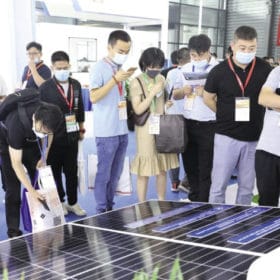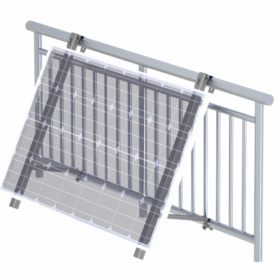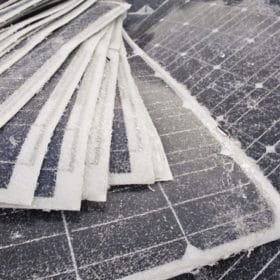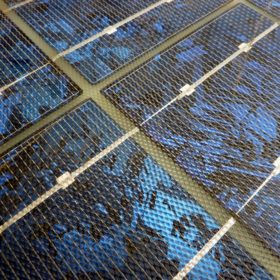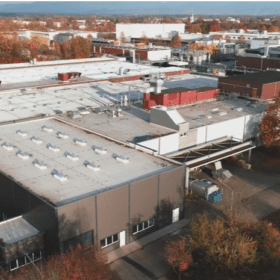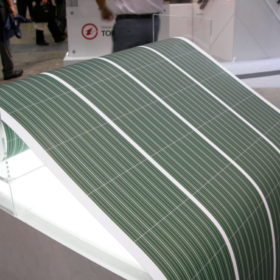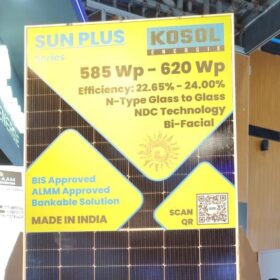The long read: Bigger yes, but better…?
It is now a well-established trend. After the switch to larger wafer sizes played out in 2019, this year has seen virtually all of the biggest PV manufacturers introduce new modules in dimensions above the 2-meter mark, and with power ratings in excess of 500 W – in some cases, as high as 800 W. As these modules begin to roll off production lines in larger quantities, it’s vital to take a look at the challenges and opportunities they bring to system design, installation, and long-term operation.
Mounting structure for balcony solar modules
Sino-Australian manufacturer Clenergy has unveiled a new mounting solution for PV panels installed in balconies. The structure is adjustable to different types of commonly-sized balconies with metal railings.
The long read: The afterlife of solar panels
Use of the term “circular economy” is growing in virtually every industry worldwide – solar included. As noted throughout Q3, in the UP initiative’s focus on circular manufacturing, work is already underway to integrate circular principles into all areas of business, from internal operations and supply chain management to manufacturing and installations. In a recent analysis of PV recycling, BloombergNEF detailed six conclusions for the solar industry and those who are trying to make it more circular. Cecilia L’Ecluse, solar associate, and Julia Attwood, head of advanced materials at BloombergNEF share these conclusions as part of our quarterly theme on PV module recycling.
BHEL tenders for supply of 286,000 solar cells
Manufacturers have until December 4 to bid for the supply of 286,000 multicrystalline silicon solar cells using five bus bars. The cells are required in the peak power rating of 4.62W (10,000 quantities), 4.67Wp (60,000) and 4.72Wp (216,000).
Exide Industries increases stake in lithium battery JV with Leclanché
With an additional investment of INR 33.17 crore, Exide Industries’ shareholding in the joint venture company has increased by 2.28% to 80.15% of the paid-up equity share capital.
Government planning electric vehicle charging kiosks at 69,000 petrol pumps
An underdeveloped charging ecosystem is one of the many factors restricting the uptake of electric four-wheelers in India. A limited number of products and higher costs than combustion-engine powered vehicles are the other deterrents.
Even if organic PV is cheap enough, efficiency does matter
A British-German research team claims that organic PV technologies may become mature enough to compete with crystalline silicon and thin-film products not only in BIPV, but also in power generation in the electricity market. In order to get there, however, organic PV products will have to achieve higher efficiencies.
Prime Minister Narendra Modi unveils 45 MW monocrystalline solar panel plant at PDPU
The solar panel production line at Pandit Deendayal Petroleum University’s campus in Gujarat will demonstrate the process of cell-to-panel integration, lamination and EL testing.
The long read: Capturing complexity through the power of the cloud
Bifacial modules have brought significant opportunities to PV project developers, but they have also increased complexity in system design and the modeling of plant output. Australian software developers PV Lighthouse believe they have created a fix, by allowing the complexity to be handled by the use of cloud computing. PV Lighthouse CEO Keith McIntosh and CCO Ben Sudbury argue that their software can be useful for module makers, tracker suppliers, and PV project developers alike.
Trends in solar modules – RenewSys interview
Avinash Hiranandani, global chief executive officer and managing director, RenewSys India, speaks to pv magazine about solar module technology trends and their company’s manufacturing focus.
